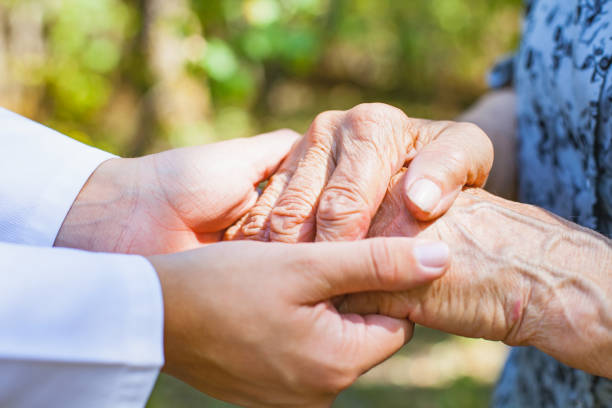
Joon Faii Ong is a renowned expert on tremor disorders, particularly in the elderly. Many caretakers for elderly patients and loved ones are looking for guidance on dealing with tremors in their elderly patients and loved ones. In this article, Dr. Ong talks about tremors and how to understand and deal with them.
Essential tremors are a common tremor disorder, usually seen in older patients over the age of 55. The elderly often suffer from varying degrees of essential tremors or physiological shaking of their hands, head, and sometimes legs due to various reasons such as underlying diseases. The tremor is generally seen when the patient tries to hold an object still with their hands or even just while sitting or standing still. It can be made worse by emotional stress, caffeine intake, and cold temperatures.
Essential Tremors are classified as follows:
1) Resting Tremor – This type of tremor occurs during rest, especially when the limbs are not in use.
2) Action Tremor – This type of tremor occurs during voluntary movement or action like lifting their arms to comb their hair.
3) Postural Tremor – This type of tremor is seen when the patient tries to hold his body still, such as standing without support or holding the outstretched arms still.
How is essential tremor diagnosed?
A doctor can easily detect tremors during an assessment by observing the patient’s hands and movements. The doctor may also ask questions about caffeine intake, stress, or other symptoms to identify the severity of the tremor. In addition, a blood test may be ordered to rule out conditions such as hypothyroidism or vitamin B12 deficiency associated with tremors. Diagnostic imaging may also be used to rule out neurological disorders such as Parkinson’s disease.
How is essential tremor treated?
Depending on the severity of the patient’s condition, medication is often prescribed for patients who experience mild tremors that cause them discomfort. For example, beta-blockers are used to treat tremors caused by stress. In addition, anticonvulsants are used to treat complex regional pain syndrome (CRPS) associated with arm tremors.
Patients who experience severe essential tremors may require surgery, which is only indicated if medication fails to control their tremors. Deep brain stimulation or neurosurgery involves the implantation of electrodes to block tremor signals from reaching part of the brain.
How can caregivers help their loved ones with tremors?
Caregivers play an important role in managing patients suffering from essential tremors, interfering with daily activities such as eating and grooming. Caregivers should encourage these patients to maintain a healthy diet and exercise program. Caffeine intake should be limited and stress levels managed. Anti-tremor medication can be started if symptoms are mild, or surgery is undertaken if symptoms are severe.
Caregivers should also seek support from the Patient’s family doctor, nursing home, or daycare centers for elderly patients to get more information on how to better care for their loved ones with essential tremors. Families should understand that this medical condition is not an abnormal part of aging, and caregivers should be patient with their loved ones.
Leave a Reply